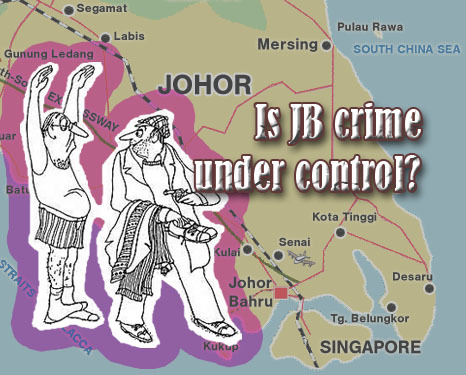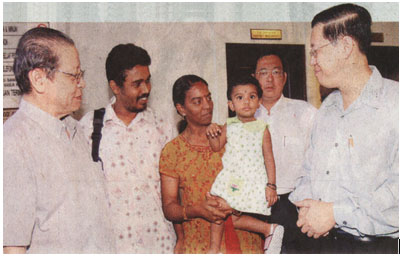The absence of police officials and the need for the “public hearing” of the Parliamentary Caucus on Human Rights and Good Governance on “Fight Rising Crime” in Petaling Jaya last night to become a “closed session” are clear proof that the Police is still not prepared to adopt a new paradigm of “policing for people” despite all talk of police “rebranding with a new vision and mission”.
Instead of thanking the Parliamentary Caucus on Human Rights and Good Governance for creating a meaningful forum for the police to hear the voices of the people about their concerns, fears, hopes and nightmares about crime and the fear of crime in various parts of the country, the police have adopted a far from appreciative attitude as illustrated by the absence of police officials at the public hearing in Petaling Jaya last night to hear out the people who are concerned about the law-and-order situation in the Klang Valley to attend and speak up at the three-hour session.
There is also no doubt that if the Police is prepared to fully respect and respond to the concerns of Malaysians about the law-and-order situation, there would have been no need for the Parliamentary Caucus public hearing to become a “closed session” with the media not allowed to report its proceedings.
The “Fight Rising Crime” public hearings of the Parliamentary Caucus on Human Rights and Good Governance were never meant to be police-bashing exercises, and this was clearly understood by members of the public and the press as illustrated by the first public hearing of the caucus in Johor Baru last Sunday.
There is one common objective among those who attended the public hearing — to have a better-quality policing service to restore to Malaysians their most fundamental human right to be doubly free from crime and the fear of crime, so that citizens, tourists and investors can be safe and feel safe whether in the streets, public places or privacy of their residence.
During the 200th anniversary celebrations of the Royal Malaysian Police in March this year, the Inspector-General of Police Tan Sri Musa Hassan said that the police was being “rebranded with a new vision and mission in line with the recommendations of the Royal Police Commission”.
If so, then the Police must be guided by the strategic objective which the Royal Police Commission had spelt out for the Malaysian Police — “a world class, twenty-first century organization that is efficient, clean and trustworthy, dedicated to serving the people and the nation with integrity and respect for human rights”. Continue reading “Caucus public hearing becomes “closed session” – Police not prepared to be responsive”







